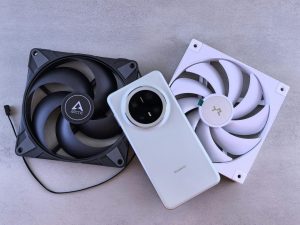Choosing the Right Power Supply Unit for Your Custom PC Build
Building a custom PC is an exciting endeavor. From choosing the perfect graphics card to assembling all the components together, every step is crucial in creating the ultimate gaming or workstation machine. However, amidst all the flashy and high-performance components, one often overlooked component is the power supply unit (PSU). While the PSU may seem like a minor component, it is the backbone of your custom PC, and choosing the right one is essential for its overall performance and longevity. In this article, we will delve into the world of power supply units and guide you in choosing the best one for your custom PC build.
What is a Power Supply Unit (PSU)?
Before diving into the process of selecting the right PSU, let us first understand what exactly a PSU is and its function in a custom PC build. Simply put, a PSU is the device responsible for converting AC (alternating current) power from your wall socket to DC (direct current) power, which your PC components need to function. It also regulates and distributes the power to different components, ensuring that they receive the necessary amount of power without getting damaged. In short, the PSU is the heart of your custom PC, providing the required power for all its components to function.
Factors to Consider When Choosing a Power Supply Unit:
With so many PSU options available in the market, choosing the right one can be overwhelming. Here are some essential factors to consider while selecting the perfect PSU for your custom PC build:
1. Wattage and Efficiency Rating:
The wattage of a PSU indicates the maximum amount of power it can supply to your components. It is essential to choose a PSU with higher wattage than your system’s requirements to have enough headroom for future upgrades. However, wattage alone does not guarantee a PSU’s quality, and that is where the efficiency rating comes into play. The efficiency rating indicates how well the PSU converts AC power to DC power. A higher efficiency rating means less power is wasted, resulting in lower electricity bills and a longer lifespan for your components.
2. Modular vs. Non-Modular:
Modular PSUs allow you to connect only the necessary cables, making cable management easier and less cluttered inside the PC case. On the other hand, non-modular PSUs come with all cables hardwired to the PSU, making cable management challenging. However, non-modular PSUs are usually cheaper compared to modular PSUs.
3. Size and Compatibility:
Choosing a PSU that fits your PC case and is compatible with your other components is crucial. Most modern cases and PSUs follow the ATX standard, making them compatible with each other. However, for smaller form factor cases, you may need to choose a smaller size PSU, such as SFX or SFX-L, which can deliver the same performance.
4. Brand and Quality:
As with any PC component, the brand and quality of a PSU are crucial factors to consider. Always opt for trusted brands with a good reputation and customer feedback. Saving a few bucks by buying a low-quality PSU may end up costing you more in the long run by damaging your other components or causing system failures.
Conclusion:
Selecting the right PSU for your custom PC build is crucial for its overall performance and longevity. Consider factors such as wattage, efficiency rating, size, and brand while choosing the perfect PSU. It may seem like a tedious task, but investing time and effort into researching and selecting a quality PSU will ensure a stable and powerful PC build.
In conclusion, the power supply unit may not be the most glamorous component in a custom PC build, but it is undoubtedly one of the most crucial. A good PSU will not only provide your components with the necessary power but also ensure their protection and longevity. So, next time you are building a custom PC, don’t forget to give the PSU the attention it deserves!










